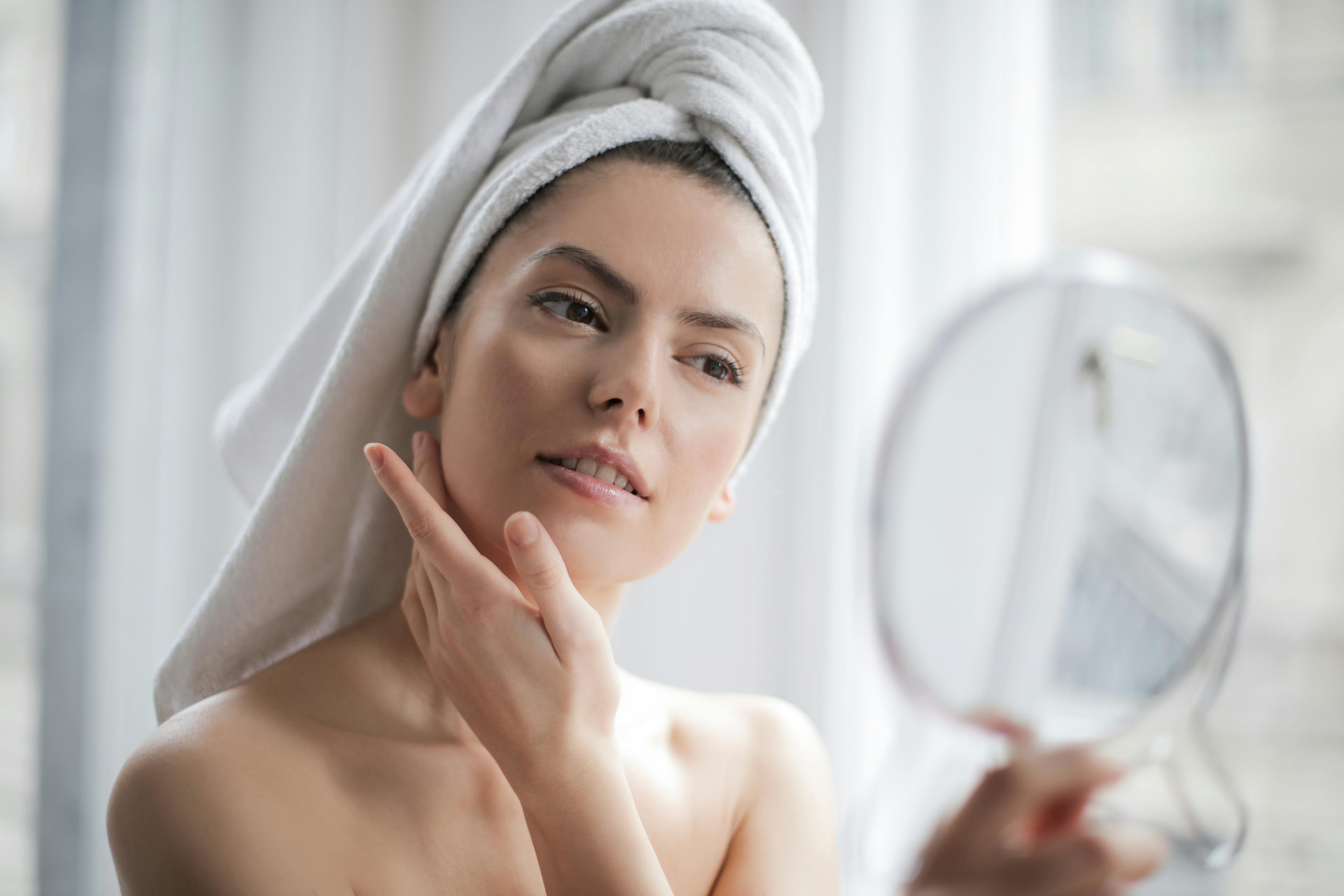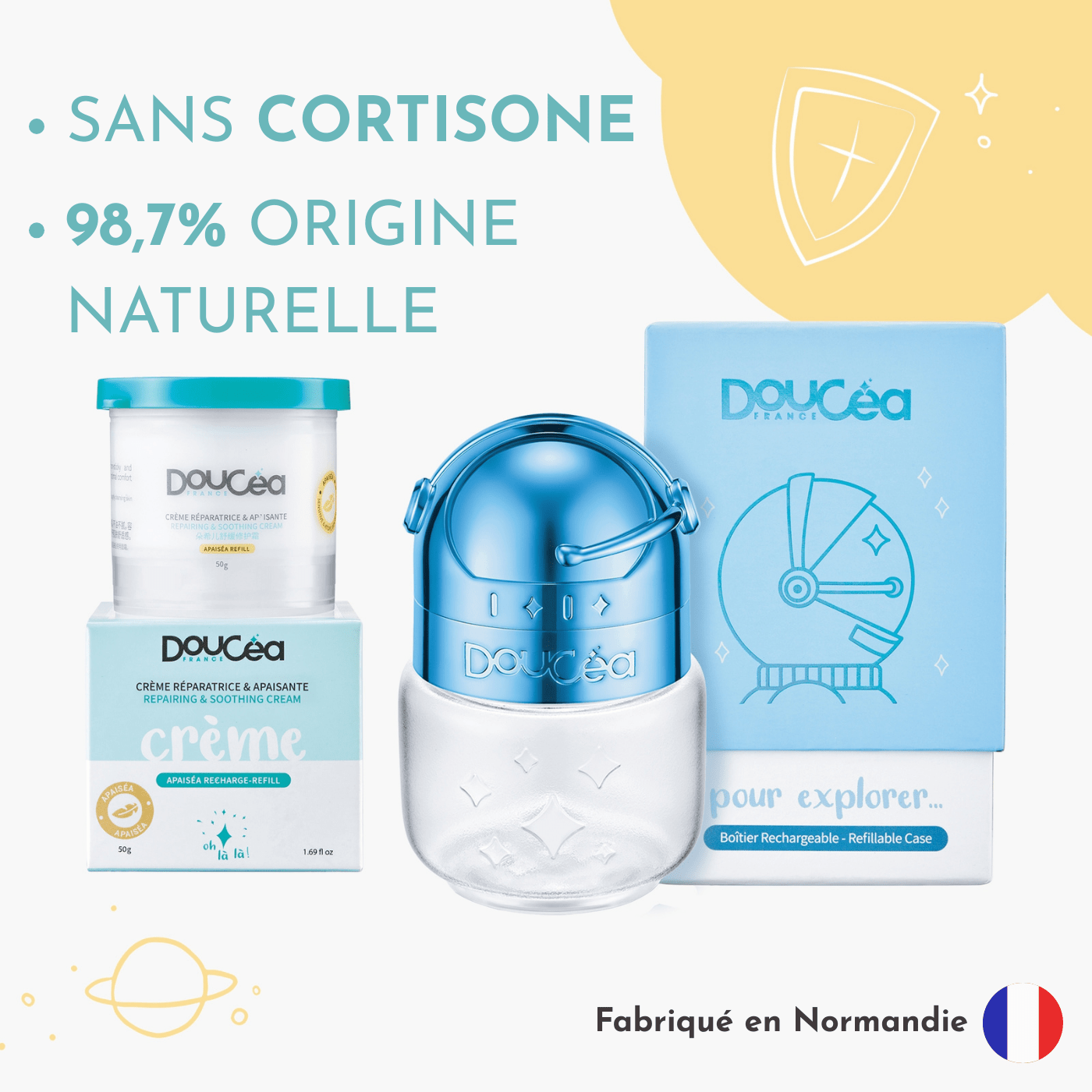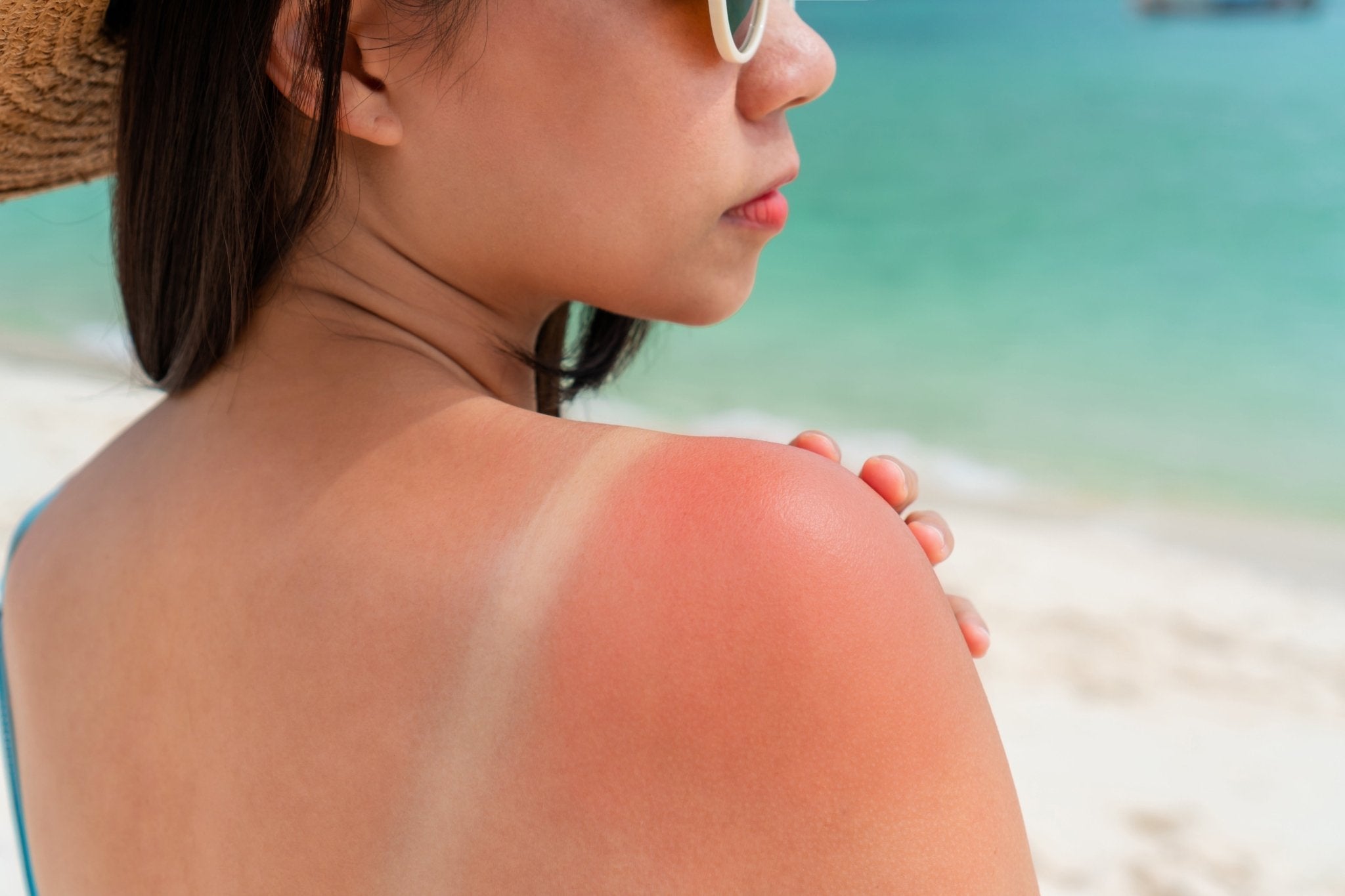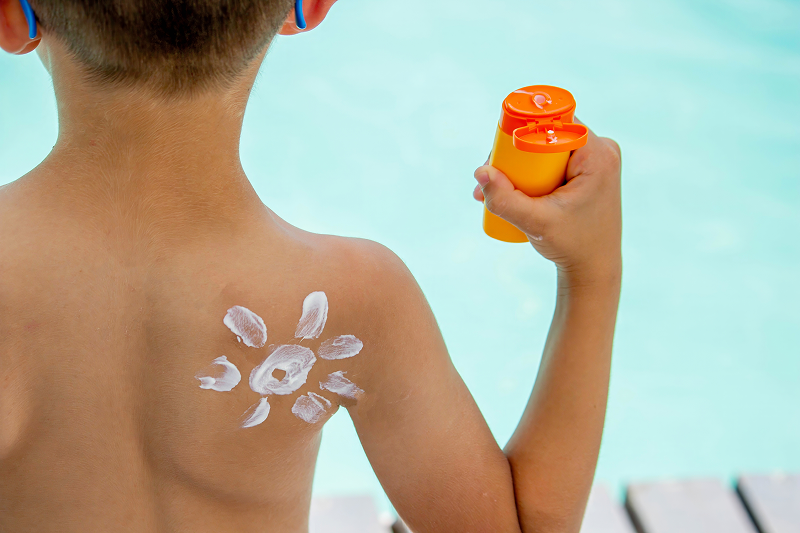Many people notice that their skin itches more in the evening or during the night. This common issue, also known as nocturnal pruritus, can seriously disrupt sleep and quality of life. Yet, it is often misunderstood—commonly attributed to stress or simple dryness, without identifying the true underlying causes. Why does skin itch more at the end of the day? What underlying conditions can explain it? And above all, how can you soothe it to enjoy peaceful nights? In this article, we explore the possible causes of nocturnal itching, the aggravating factors, and the steps you can take to calm itchy skin in the evening.
Physiological Causes of Nighttime Itching
Several natural body mechanisms may explain why itching worsens in the evening or at night:
Increased Skin Dryness at Day’s End
Dry skin is one of the most common causes of itching. In general, the drier the skin, the more likely it is to itch. In the evening, after a day of exposure to external aggressors, the skin may become dehydrated. If the nighttime environment is dry (due to heating, lack of humidity), the skin loses even more moisture, worsening the itching sensation. This is often the case in winter, when heating systems dry out the air and intensify skin pruritus.
Circadian Rhythm and Hormones
Our body follows an internal biological clock (circadian rhythm) that alters various physiological functions over 24 hours. In the evening, certain hormonal changes increase the urge to scratch. For example, body temperature slightly drops at night, which can heighten the itching sensation. Moreover, cortisol (a natural anti-inflammatory hormone) levels decrease in the evening, reducing the skin’s “soothing” defense. As a result, minor irritations that go unnoticed during the day feel more intense at night. Also, the skin regenerates overnight and blood flow to the skin increases, which can make it more sensitive to itching if it’s already weakened.
Histamine Release at Night
Histamine is a molecule released during allergic or inflammatory reactions. In some people, histamine production peaks during the night. This elevated release can worsen itching, especially for those with eczema or allergies. An allergic or atopic predisposition can lead to intensified symptoms (redness, hives, tingling) in the evening due to this phenomenon.
Increased Awareness and Psychological Factors
At bedtime, the quiet, dark environment makes us more aware of bodily discomforts. Mild itching that goes unnoticed during active daytime hours feels much more intense at night. Accumulated stress and fatigue may also play a role—end-of-day anxiety or nighttime rumination can heighten the perception of itching. These are called psychogenic factors: the itch is not “just in your head,” but stress can trigger or amplify an already present need to scratch.
Underlying Skin Conditions That Cause Nighttime Itching
In many cases, evening itchiness signals an underlying skin condition. Here are some commonly associated skin diseases:
Eczema (Atopic Dermatitis)
A chronic inflammatory skin condition marked by red, dry patches that itch intensely. Itching is often worse at night, disrupting sleep. Eczema is a common cause of pruritus, particularly in children, but also in adults with sensitive skin. Poor skincare or allergens can trigger evening flare-ups.
Hives (Urticaria)
A skin reaction with small pink swellings (wheals) similar to nettle stings, often very itchy. Some chronic forms worsen at night due to histamine release or low evening cortisol. End-of-day stress can also trigger nocturnal urticaria flare-ups.
Psoriasis
A chronic inflammatory disease causing red plaques covered with white scales. Psoriasis is known for visible lesions, but about half of patients also experience itching, which can worsen at night when the skin is at rest. Dryness from plaques can cause night-time flare-ups. Moisturizing and proper treatment can help reduce these symptoms.
Xerosis (Severe Dry Skin)
Extremely dry skin is a common, benign cause of itching. Xerosis refers to a significant lack of skin lipids and moisture, especially in the elderly or during winter. Without proper hydration, diffuse itching often worsens at night.
Other Skin Disorders
Other conditions like scabies (caused by mites), fungal infections (e.g. candidiasis), viral diseases (chickenpox, shingles), or allergic contact dermatitis can also cause itching, often worse in the evening when the skin warms up after removing clothes or shoes.
Note: Sometimes, nighttime pruritus may indicate internal, non-skin-related causes (e.g., liver issues like cholestasis, kidney disease, thyroid imbalance, or rarely, lymphoma). Consult a doctor if no skin cause is found.
Evening Itching Triggers
Certain habits or external factors can unknowingly worsen evening itching:
Heat and Dry Air
Overheated rooms or dry air increase pruritus. Excessive warmth leads to sweating, which can irritate dry or eczematous skin. Dry air (from heaters or A/C) dehydrates the upper skin layer, worsening itching. This is particularly common in winter.
Irritating Laundry Products
Harsh detergents, scented softeners, or poorly rinsed laundry leave chemical residues on clothes and sheets. Sensitive skin may react, especially at night when exposed to bedding for hours.
Harsh Cleansers and Cosmetics
Soaps, shower gels, or lotions with alcohol, fragrances, or other irritants used before bed can cause tightness and itching.
Showering and Swimming
Hard water rich in minerals (calcium, magnesium) can damage the skin’s protective barrier. Chlorine and cleaning products also aggravate dryness and itching.
Unsuitable Clothing
Tight or synthetic/wool clothing worn during the day can irritate the skin through friction and trapped moisture. Rough or non-breathable pajamas and bedding trap sweat and warmth, making the skin itch. Prefer breathable natural fabrics like cotton.
Stress and Fatigue
Daily stress is a major itching trigger. Anxiety disrupts the immune system, making skin more reactive. Fatigue lowers tolerance to irritation, reducing the itch perception threshold. Stressful evenings often make itching feel worse.
Diet and Stimulants
Certain foods (alcohol, spicy or sugary meals, histamine-rich items like aged cheese, deli meats, tomatoes) can increase inflammation or histamine release, leading to evening itching in sensitive individuals.
How to Relieve Itchy Skin at Night
Thankfully, there are many ways to soothe itchy skin in the evening and enjoy more peaceful sleep:
Practice Gentle Evening Hygiene
Take a short, lukewarm shower before bed (not a hot bath). Hot water dries the skin, while warm water soothes it. Use a mild, soap-free cleanser without fragrance, and gently pat dry with a soft cotton towel.
Hydrate and Nourish Your Skin
Apply a rich moisturizer or emollient lotion every evening (and ideally every morning). Focus on dry areas to restore the skin barrier and prevent night-time dryness. Choose fragrance-free, hypoallergenic products. Keep cream nearby to reapply if itching returns at night.
Create a Skin-Friendly Sleep Environment
Keep the room cool (around 18°C/64°F) to prevent sweating. Use a humidifier if the air is dry. Ventilate the room daily and use breathable sheets (cotton, linen, bamboo, silk). Wash sheets and pillowcases every 1–2 weeks with fragrance-free detergent.
Avoid Scratching
Scratching worsens the itch-scratch cycle and can damage the skin. Keep nails short. Instead of scratching, apply a cool cloth or spritz thermal water. You can also use over-the-counter soothing creams (e.g., calamine or colloidal oatmeal).
Manage Stress and Relax Before Bed
Unwind with breathing exercises, gentle stretching, or a relaxing book. Avoid screens. Calming teas (chamomile, linden) can help too. A peaceful mind helps reduce anxiety-related itching and improves sleep and skin regeneration.
For Babies
Use soft cotton mittens to prevent scratching and secondary infection from nails.
If nighttime itching persists despite these tips or disrupts your sleep, consult a doctor. A dermatologist can determine if a medical cause (eczema, allergy, psoriasis, etc.) is involved and prescribe appropriate treatment. Temporary medications like antihistamines or corticosteroid creams may help ease symptoms while the root issue is addressed.
Conclusion: Don’t Let Nighttime Itching Ruin Your Sleep
In summary, evening itchiness is common and usually benign but can greatly affect comfort and sleep. It is caused by a mix of physiological factors (dryness, hormonal shifts, histamine) and sometimes by underlying skin conditions (eczema, hives, psoriasis). Daily habits and external triggers (heat, stress, irritants) may worsen symptoms. The good news is: with the right care routine, you can significantly reduce nighttime itching and enjoy restful sleep. Hydration, a cool environment, soft clothing, and relaxation are your best allies. If symptoms persist, a healthcare professional can help. With the right treatment and a little patience, you’ll overcome those evening itches and sleep soundly again—your skin deserves it.


















